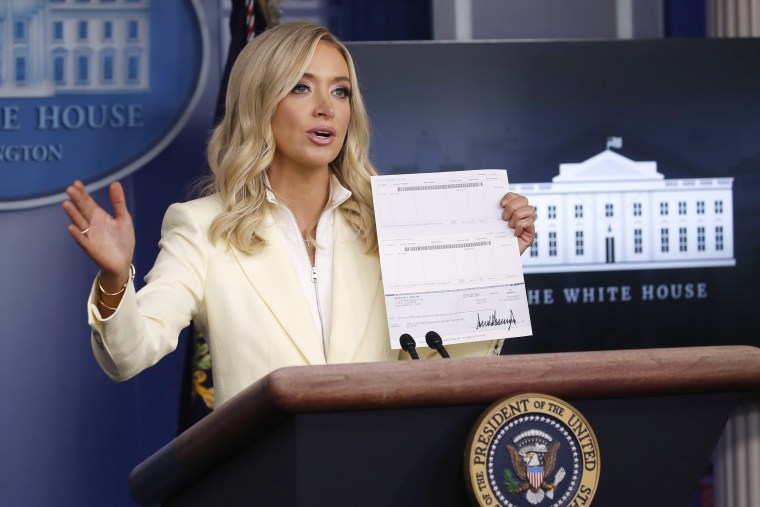On Wednesday, Dr. Anthony Fauci said what others in the Trump administration had not: the evidence shows hydroxychloroquine is not an effective treatment for the coronavirus. Yesterday morning, Veterans Affairs Secretary Robert Wilkie told Congress his department is in the process of winding down use of the potentially dangerous drug when treating COVID-19 patients.
This comes the same week as NBC News reporting that the World Health Organization suspended a trial of hydroxychloroquine, fearing the medication may put patients in even greater danger. All of this, of course, comes on the heels of several recent reports questioning the efficacy of hydroxychloroquine, including warnings from the FDA.
And yet, there was White House Press Secretary Kayleigh McEnany at yesterday's briefing, responding to a question about whether the president is still taking hydroxychloroquine. She replied:
"...I went to him just before coming out here and I asked him that. And he said, quote, he's 'feeling perfect.' Quote, he's 'feeling absolutely great' after taking this regimen. And, quote, he 'would take it again' if he thought that he was exposed. So he is feeling very good."
The press secretary went on to point to assorted reports that the White House believes bolsters the idea that hydroxychloroquine is effective as a prophylaxis.
McEnany added that while it's important to get a prescription before taking the medication, she fears "hyperbole about this being unsafe" may be "deterring people from being recruited into actual clinical trials."
In other words, the White House is concerned that Americans might see reports from The Lancet, the New England Journal of Medicine, the Journal of the American Medical Association, the FDA, the CDC, the VA, and the WHO, and come away with a sense of trepidation.
Imagine that.

